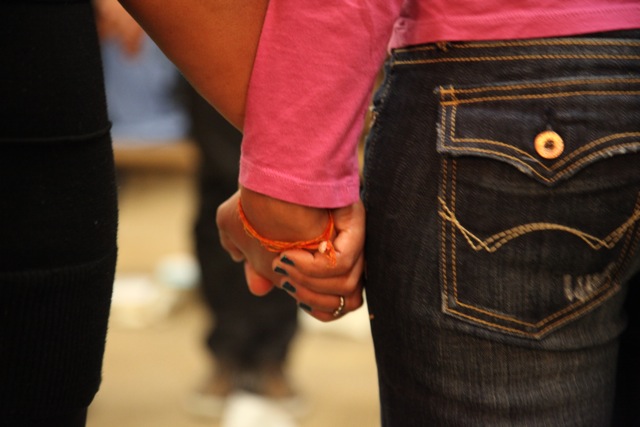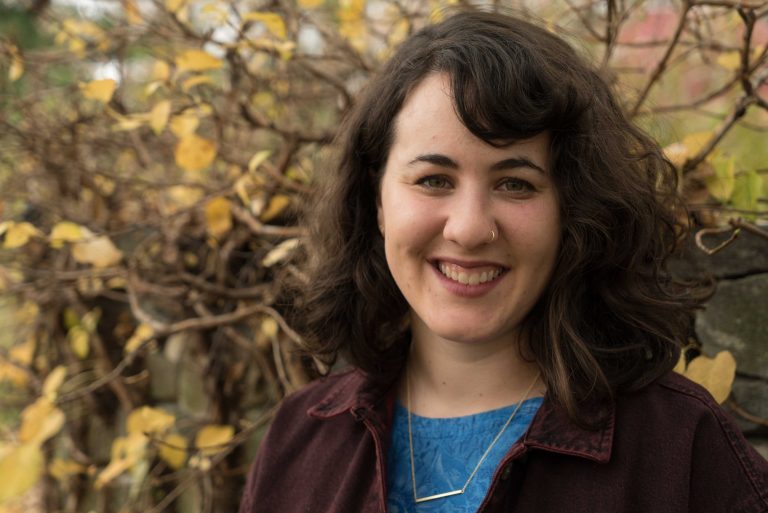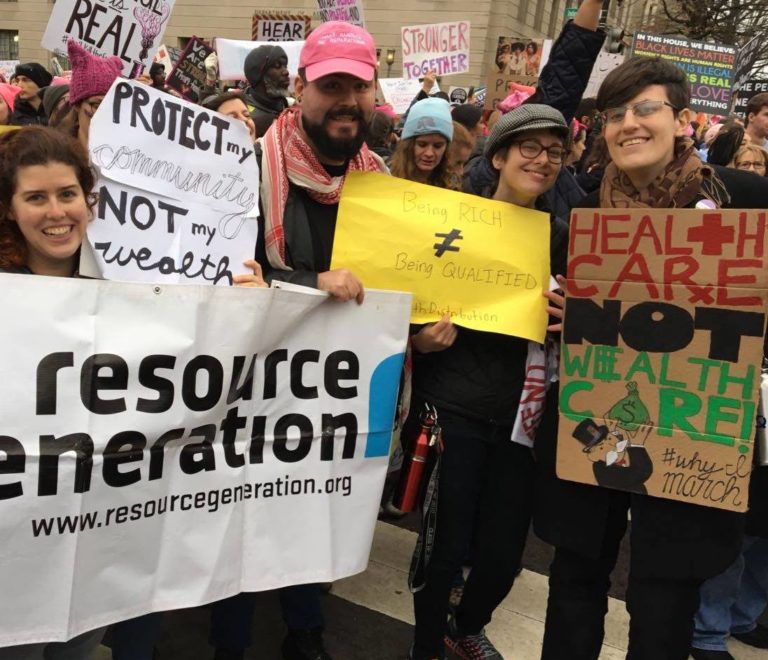Class Privilege: What's Partnership Got To Do With It?
Liz Sullivan is on RG’s Board, and is a leader in our work with partners of young people with wealth.
I didn’t ease gracefully into being a partner of a young person with wealth. It was more like I stumbled and landed into the identity with a thud, a bewildered look of “how did I end up here and what do I do now?” on my face.
At first, it was easy to just ignore the fact that Alex had access to wealth – it certainly had nothing to do with me. When he went to family meetings twice a year, I admittedly didn’t ask many questions and when other people asked I told them something vague along the lines of “They have a family coach and they talk about taxes, I think.” This doesn’t mean there wasn’t an emotional charge to conversations around money; after one of these family meetings, Alex came home and handed me a book, saying “My parents thought you might find this helpful.” I looked down at the title, “Prenups for Lovers.” I literally threw the book across the room and said some choice words. Like I said, my transition was a little rough.
Once I accepted that his family had wealth, I quickly added the caveat that Alex himself didn’t, as access to his trust fund is still several years away. Aside from the fact that I was denying his access to a host of class privileges through his family wealth, his own class status changed after he graduated and got a job in the tech industry. Which of course, still had nothing to do with me.
Eventually though, I was faced with the inevitable – I was benefitting from his class status, too. I was able to travel to places that would have otherwise been near impossible for me to visit. We bought a house in San Francisco (that one is still hard for me to say out loud). I was able to take 4 months off to “find myself” and find a job I loved. The money wasn’t in my bank account, but I was certainly enjoying class privilege that most of those around me could not.

As partners of young people with wealth, we often talk about the challenges we face – straddling class lines, dealing with different expectations in the partnership (having someone that cleans your house seems to be a big one), what constitutes having “enough” – but we less often talk about the practical ways we approach these challenges and facing our newfound privilege.
So, here’s what I did. These notes are intended to be a helpful jumping off point, as your story is likely different than mine and you will have different issues.
- I learned the language. The financial world has it’s own set of acronyms and terms that I knew nothing about. Not to mention the philanthropic and impact investing world, which should and do have whole glossaries to define terms. I made it a priority to educate myself and ask a lot of questions so I could understand and engage in conversations about having and giving away money.
- I got involved outside of the family. Alex’s family was actively involved in the philanthropic world, and my first job out of college was event planning for a conference on impact investing (Hello privilege! Nice to see you there!) Working in the industry, for lack of a better term, gave me a huge insight into the work Alex’s family does.
- I found RG. Accepting my new class privilege also forced me to look at the privilege I’d had my whole life, being white and middle class. This was, and still is, a heavy thing that’s often messy. Finding RG, both the community of partners and just super awesome folks who GET IT, was a lifesaver. I got involved here too – first as a fellow, then as a co-chair, and now as a board member. I knew this work was important for me and for other out there like me who were facing these issues for the first time.
- We talked about money. We got married in July, and having a pre-nup sort of forces the conversation. I’m confident that we’re on the same page when it comes to our long term financial plans. Again, knowing the language and asking questions were key in making these conversations successful.
- We give back to our community together. As part of Alex’s involvement in the foundation, he gets a set amount of money to give away as grants each year. We discuss together where we want this money to go which has let us work together in a different way and actively participate in giving back to our communities. It also brought joy back to conversations around money, which is often sorely lacking.
Being a partner to a young person with wealth is often messy, confusing, and challenging. It’s also an opportunity for growth, open communication, and strength building both as an individual and in a partnership. I ping-pong between these two sets of feelings on the regular. The more work I do, the harder it gets – because it turns out feelings around money, class, and privilege run pretty freaking deep. But I also find myself participating in the world in a new way that comes from looking at the hard stuff.




